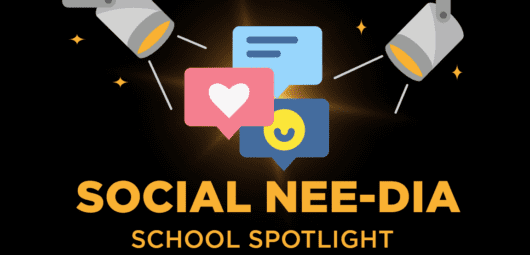Educator Evaluation and COVID-19: A Focus on Coaching and Support

This blog post was written as the COVID-19 crisis was unfolding in the U.S. in March 2020. NEE has since compiled an updated set of recommendations and resources for evaluating remote teaching.
This truly is an unusual time for all of us as we cope with the spread of COVID-19 and the impacts to schools.
As school leaders face difficult and pressing decisions, the Network for Educator Effectiveness is committed to offering our support and resources. Please visit our blog page devoted to COVID-19 support and resources for school leaders.
Although we recognize teacher evaluation is among the least of your concerns, it is the area in which we specialize, so we want to tackle this question first:
How should I evaluate teachers now?
If your school is moving to an online learning environment, the Network for Educator Effectiveness is recommending that you approach feedback from a coaching perspective and not an evaluative perspective.
In fact, we are recommending against entering new evaluation data if your school moves to an online teaching environment. Teachers need time to adjust and to get comfortable with new teaching strategies, activities, software, and concepts. This is a stressful and quick-changing time, and everyone will need to be adaptable.
It is time to take off the scorekeeping shirt and put on your coaching gear. Coaching conversations will be the most impactful as educators adjust to this new reality. In coaching conversations, be non-evaluative and supportive. For the time being, coaching conversations may occur over the phone, through online meeting platforms, or email.
Here is a suggested process for checking in with and supporting teachers through this transition:
- Ask teachers to go through a self-audit, listing their strengths and challenges with the new resources, strategies, and technologies they will be using. After completion of the self-audit, have teachers create a SMART goal they know they can master.
- Provide teachers the room to practice and experiment with the resources, strategies, and techniques they are using. You might consider teaming teachers to harness the strength of crowdsourcing as they plan materials for students and support families in continuing learning. If, for example, the packet/online lessons are sent out by the whole grade level, the teachers’ individual strengths combine to make for a better product.
- Observe teaching in whatever capacity available to you – recorded video, joining video session, accessing online materials, etc.
- After a few weeks, meet with the teacher around the SMART goal they set and the learning you have collected evidence on.
- Provide specific praise around the learning and what you noticed. Encourage positivity and growth by focusing on what is being done well in working towards the goal.
- Find an area to target. Focus on errors/omissions of new learning strategies or techniques in a non-critical way. Assume the teacher was doing their best with their new skills, and then let them know the pieces you noticed as needing to be strengthened, offering space for how to incorporate those.
- Collaborate to develop the skills that could be incorporated and how they could be successfully implemented during future learning.
Facilitating your feedback conversations with teachers in a coaching manner during this time will provide for a level of comfort and growth that teachers will need. It will also allow teachers to continue to practice their craft in a way that will ultimately help students, as it will ease fears and concerns.
For more COVID-19 support and resources for school leaders, please visit our blog page devoted to this topic.
This blog post was written as the COVID-19 crisis was unfolding in the U.S. in March 2020. NEE has since compiled an updated set of recommendations and resources for evaluating remote teaching as the pandemic continues.
The Network for Educator Effectiveness (NEE) is a simple yet powerful comprehensive system for educator evaluation that helps educators grow, students learn, and schools improve. Developed by preK-12 practitioners and experts at the University of Missouri, NEE brings together classroom observation, student feedback, teacher curriculum planning, and professional development as measures of effectiveness in a secure online portal designed to promote educator growth and development.


